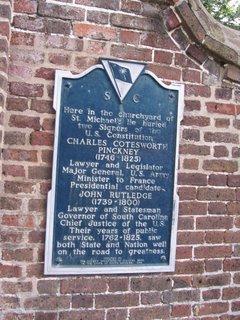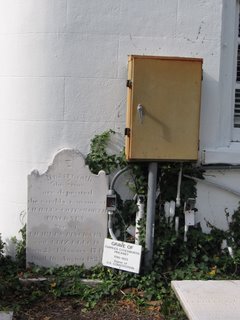[My friend and colleague, Pastor Glen VanderKloot presented this message to the people of his congregation, Faith Lutheran Church of Springfield, Illinois. You can subscribe to Glen's daily inspirations by sending an email to olwf1@gliq.net, typing SUBSCRIBE in the subject line.]Author Dr. David McLennon tells a story of his very first job in a small town general store. This was before malls and supermarket chains. At age thirteen he was hired as a handy boy. He would sweep the floor, bag items for customers, stock the shelves. On one particular Saturday, he recalled, he heard the owner say to one of the clerks, "It's that time of the year again. It's time to take inventory."
Dr. McLennon wrote that this was a word that had not yet entered into his vocabulary. When an opportune moment arrived, he went up to the older man and asked, "Sir, what is an inventory?"
Patiently the owner explained that it was a time when you made a list of everything that you had--from groceries on the shelves to wrapping paper and string. Still somewhat puzzled, the young McLennon then asked, "Why?"
The owner responded, "Well, it's easy to forget exactly how much you have each year. Every now and then you have to take an inventory just to see what all you have."
That little story sums up what New Year's is all about. It is a time when each of us needs to take an inventory of our life. Because it's easy to forget exactly how much God has given to us, we need to take an inventory, just to see all that we do have.
Taking inventory allows us to end strong and start right. This is what we always want to do: end strong, start right. These two go hand in hand.
Often we see a race in which one of the runners starts out very strong, yet be so weakened by the end of the race that he finishes far behind. One alone isn't enough. We need to do both: end strong, start right.
Ending strong. Jesus said, "Stay with it. That's what required. Stay with it to the end. You won't be sorry... (Mark 13:13
The Message)
We always want to end strong, especially at the end of life. We see a wonderful example of this in Stephen. He was one of the first deacons in the church. He also is one of the first Christian martyrs. As he was being stoned to death, he called out, "Lord Jesus, please welcome me!...Lord, don't blame them for what they have done." (Acts 7:59-60
CEV)
Stephen died as he lived - faithfully. He ended strong. Let us live our lives faithfully every day so that someday we can say along with St. Paul, "I have fought well. I have finished the race, and I have been faithful." (2 Timothy 4:7
CEV)
Starting right. One day a woman who was very depressed about the conditions of the world decided to go shopping. She went into a mall and picked a store at random. She walked in and was surprised to see Jesus behind the counter. She thought it was Jesus because he looked just like the images she had seen at church. She finally asked, "Excuse me, are you Jesus?"
He responded, "I am."
She asked, "Do you work here?"
Jesus replied, "No I own the store."
Now the woman was quite curious and asked, "What do you sell here?"
Jesus answered, "Just about everything. Feel free to walk up and down the aisles, find what it is you want and then come back and we'll see what we can do for you."
So the woman did just that. She saw that there was peace in families, no more war, no hunger or poverty, and no more drugs. There was harmony, clean air, careful use of natural resources, honesty in politics and government. There was no AIDS, cancer, hurricanes, tornadoes or flooding. There really was `peace on earth good will to all.'
By the time she returned to the counter, she had an incredibly long list. Jesus took the list, skimmed through it, looked up at her and smiled, saying, "No problem."
Then he bent down behind the counter and picked some things, and laid out a huge number of packets. The woman asked, "What are these?"
Jesus replied, "Seeds."
"But don't I get the finished product?" she asked.
Jesus answered, "No, this is a place of hope and dreams. I give you the seeds...
- Then it is up to you.
- It is up to you to plant.
- It is up to you to nurture.
- It is up to you to fertilize.
- It is up to you to prune.
- And it is up to you to harvest."
The woman left the store without buying anything.
As we begin 2007 God is giving us some great seeds. The rest is up to us. Remember God says:
I have set before you life and death, blessings and curses. Choose life...loving the Lord your God, obeying him and holding fast to him; for that means life to you..." (Deuteronomy 30:19-20
NRSV)
That is how we end 2006 strong and start 2007 right.
Amen.
Reflection Questions:- What seeds is God giving to me?
- How will I use them?
- How is my life going to be different in 2007?
Action Step:This week take an inventory of your life and make a plan of action for 2007.















